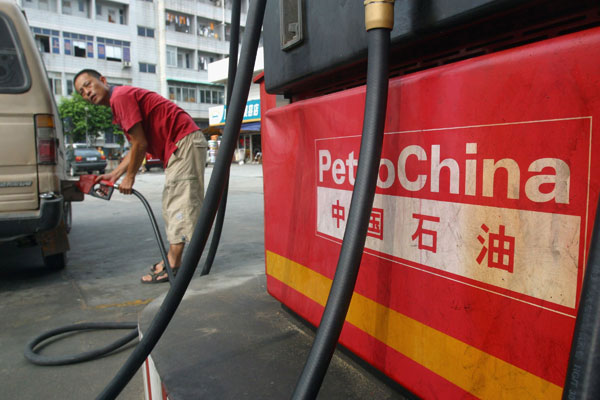
Beijing, China | AFP | China’s growth stabilised in the first quarter thanks to rising investments and a recovery in exports, experts said, though they warned the reprieve may be temporary.
According to an AFP survey of 16 economic analysts, the gross domestic product expanded 6.8 percent in the first three months of this year — the same level of growth as in the last quarter of 2016.
The official GDP growth figure will be released Monday.
“Our expectation is stable to stronger growth in the first quarter, based on faster industrial production and investment related mostly to the housing sector bubble and increased fiscal spending on infrastructure,” Brian Jackson of IHS Markit told AFP.
Cheap credit has bolstered the construction sector since last year, attracting savers and speculators who have fuelled housing prices in large cities and accelerated manufacturing activity.
While the country attempts to rebalance its economy around services and domestic consumption, “the question we need to ask is whether China has returned to the same old property-driven model,” ANZ Bank’s chief economist for greater China, Raymond Yeung, told AFP.
– ‘Headwinds’ –
“Particular areas of focus for fiscal policy are infrastructure investment, public services, social welfare and social housing, and tax and fee reductions for businesses,” Oxford Economics analyst Louis Kuijs said in a research briefing last month.
Beijing announced in March that it will maintain a 3 percent budget deficit, with 2.6 trillion yuan ($376 billion) invested this year in railway, road and waterway projects.
Foreign trade also showed improvement as US President Donald Trump backed down on calls for a trade war.
Exports rebounded sharply in March while imports surged by 24 percent in the first quarter, reflecting strong domestic demand.
But the momentum is not expected to last: according to the AFP poll’s median full-year forecast, China’s GDP growth will fall to 6.6 percent overall in 2017.
The government has aimed for 6.5 percent growth, which would mark a new slowdown and the economy’s worst performance in 26 years after a 6.7 percent GDP increase in 2016.
“We expect growth to slow down somewhat later in 2017,” Kuijs told AFP, “due to slower real estate activity momentum and the impact from the less accommodative macroeconomic policy stance.”
While more infrastructure spending and property sales in lower-tier cities will support healthy economic conditions in the first half of the year, “more headwinds” are expected in 2017, RHB Bank analyst Fan Zhang told AFP.
Fearing a housing bubble, more than 20 large cities have tightened regulations around apartment purchases and home loans.
The Chinese central bank has also raised short-term rates — effectively increasing the cost of credit — with an eye to a surging Chinese debt that exceeds 260 percent of the GDP.
“This suggests that policymakers are now prioritising efforts to address credit risks over measures to support growth,” Capital Economics analyst Mark Williams said in a statement.
“We expect further hikes in the coming quarters.”
Other experts were more circumspect.
“Despite more emphasis on containing financial risks, solid economic growth is still a key objective,” Kuijs said in the briefing.
He predicted authorities would avoid “both too much strength and too much weakness” on the housing market, maintaining a “timid” approach to structural reform.
 The Independent Uganda: You get the Truth we Pay the Price
The Independent Uganda: You get the Truth we Pay the Price



